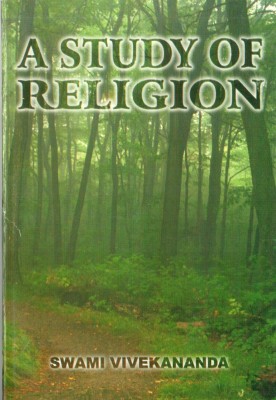A Study of Religion(English, Paperback, Vivekananda Swami)
Quick Overview
Product Price Comparison
A Study Of Religion is a compilation of eight lectures of Swami Vivekananda, presenting some of his extensive thoughts and writings on religion. Summary Of The Book A Study Of Religion is a set of eight lectures that explore Swami Vivekananda's thoughts, teachings, and writings on the subject of religion. It has been compiled from his complete, voluminous works on a variety of philosophical subjects. The book is divided into eight chapters. Beginning with a chapter that explores the meaning of religion, it goes on to explore the necessity of religion, its dynamics with reason, and its relationship with the soul and God. It also idealizes the concept of a universal religion, illuminating the manner in which the world can hope to attain such an ideal. The book further discusses Vedic religious ideals. The book ends with a chapter on the Hindu religion. This edition of A Study Of Religion was published in 2008 by Advaita Ashrama. About Swami Vivekananda Swami Vivekananda was an Indian monk who pioneered the revival of Hinduism in India and introduced the western world to the Indian philosophies of Yoga and Vedanta. He has written books like Vedanta Philosophy: Lectures On Jnana Yoga, Practical Vedanta, Karma Yoga, Raja Yoga, Bhakti Yoga, The East And The West, and Jnana Yoga. Some of these books were published posthumously. His writing presents his thoughts on numerous aspects of philosophy, particularly his theory that different types of individuals must practice different ways of worship to match their inherent nature. It was distinctly marked by humor and lucidity in keeping with his belief that language must be simple and easy to understand. Swami Vivekananda was born as Narendranath Dutta on January 12, 1863, in Calcutta, India. He was educated at the Metropolitan Institute of Ishwar Chandra Vidyasagar, the Presidency College, and later the General AssemblyŌĆÖs Institution. Narendra inherited his motherŌĆÖs religious temperament as well as his fatherŌĆÖs rationality. He was well-versed in various subjects including history, philosophy, religion, arts, literature, and social sciences. His meeting with Ramakrishna Paramahamsa in 1881 transformed his life dramatically. He eventually accepted the latter as his Guru, and under his tutelage significantly furthered his spiritual education. A couple of years after RamakrishnaŌĆÖs death, Swami Vivekananda embraced the life of a wandering monk, traveling across India, acquainting himself with every aspect of his homeland and vowing to uplift the lives of his countrymen. He was responsible for getting Hinduism acknowledged as a major world religion. His inspiring speech at the Parliament of the WorldŌĆÖs Religions in Chicago has earned legendary status. Vivekananda passed away on July 4, 1902, leaving behind a rich legacy of spirituality and inspiration.


